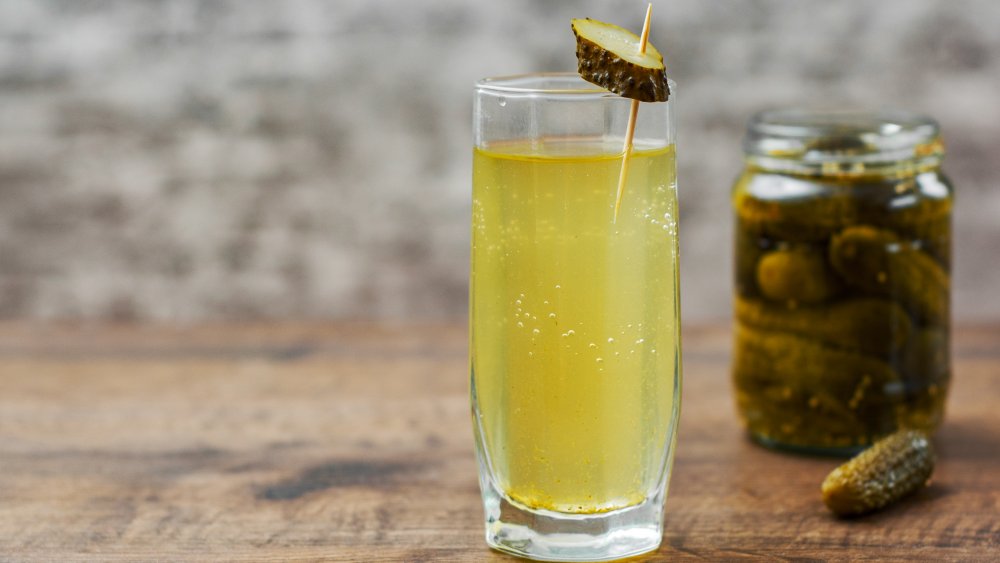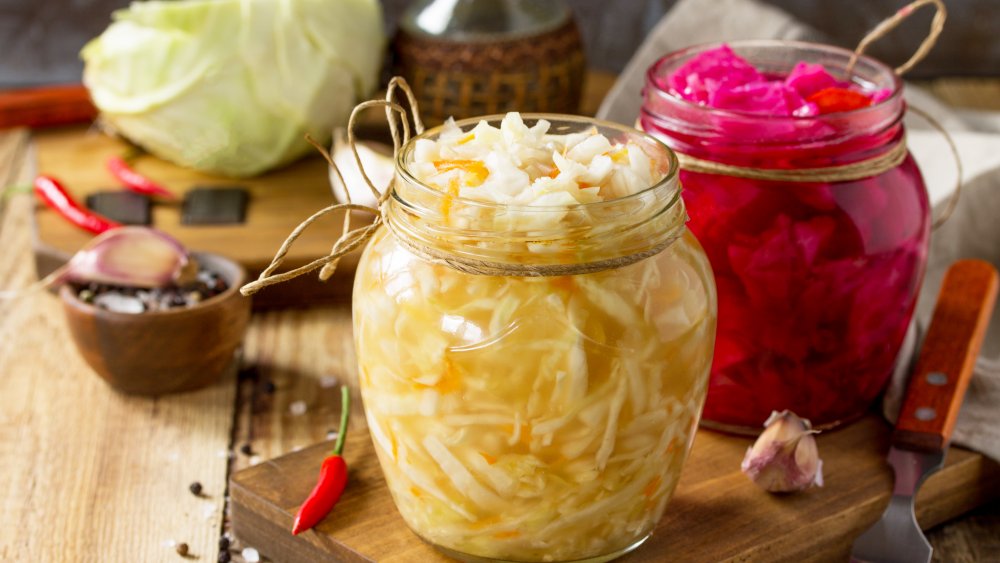Here's What You Can Do With Your Leftover Pickle Juice
Pickles have been around forever. According to the New York Food Museum, Cleopatra ate pickles as part of her beauty regime, while Julius Caesar fed them to his soldiers with the belief they provided both spiritual and physical strength. Today, it is estimated that Americans consume more than nine pounds of pickles per person annually (via I Love Pickles).
According to Medical News Today, the pickling of the pickle requires three ingredients: cucumbers, water, and salt. The cucumbers are fermented by the probiotic Lactobacillus bacteria that lives on the cucumber's skin, but those you buy at the store are made a little differently — manufacturers generally remove this bacteria and replace it with vinegar, creating what is commonly called pickle juice. Also, a variety of pickles use herbs and garlic to enhance the flavor of the pickle and the pickle juice.
So what can you do with this salty liquid once you've eaten all your pickles? Don't throw it away. Pickle juice has many uses.
Drinking pickle juice straight has long been an athlete's secret weapon to combat against muscle cramps and various aches and pains. In fact, a study shared in Medicine & Science in Sports & Exercise found that pickle juice works better than water to relieve these pesky cramps. The pickle juice helps restore the electrolyte imbalance from dehydration for a quick recovery.
Other surprising uses of pickle juice
If you're in a pickle and without any marinade for your steaks or pork chops, consider using pickle juice to tenderize and marinate your meat. Additionally, pickle juice can be a great replacement for vinegar in recipes. However, a word of caution — if you choose to swap pickle juice for vinegar and are already using other ingredients that may be high in sodium, skip adding additional salt (via Cooking Light).
Pickle juice is also a bartender's friend. From martinis to Bloody Marys, pickle juice can be used in an array of cocktails. Bon Appetit recommends using leftover pickle brine to make a "pickleback" which as they describe is a shot of pickle juice to follow a shot of whiskey. The flavors work well together, which is why you may very well find the pickleback offered at your local watering hole. Dr. Oz also recommends taking a few swigs (or about 1/4 cup) of pickle juice to help with a hangover. The salts in the juice will help restore the lost electrolytes from a night of a little debauchery.
Pickle juice can also be used to pickle other vegetables, as well as eggs. My Recipes suggests using the briny juice to pickle carrots, celery, beets, or any of your favorite vegetables. And if you don't want to consume the salty liquid, Taste of Home recommends using pickle juice to clean your copper pots. Even Martha Stewart would be impressed with your repurposing skills.

